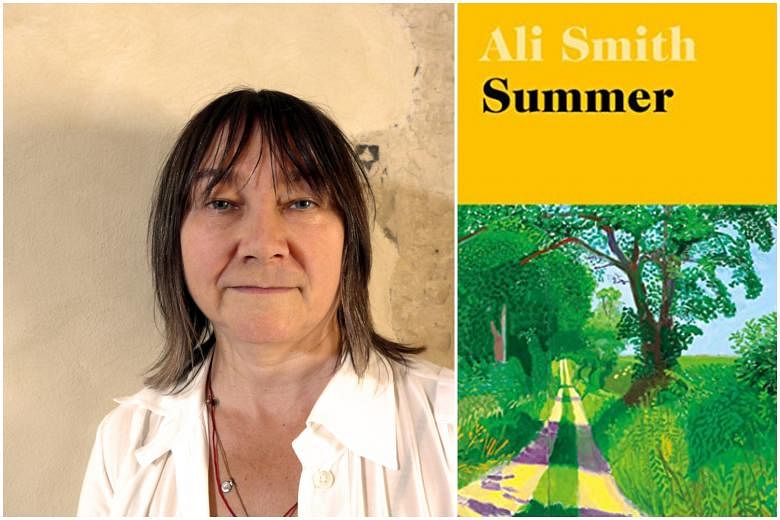FICTION
SUMMER
By Ali Smith
Hamish Hamilton/ Paperback/ 385 pages/ $32.10/ Available here
4 stars
A boy tells his sister that he will give her a present for the future. While her eyes are closed, he superglues an hourglass to her hand and runs away.
He texts her later, "from now on u always have time on ur hands".
Scottish writer Ali Smith's Brexit seasonal quartet of novels has always had a marvellous relationship with time - pressed up against the present and freewheeling through the past all at once.
"Time is more than one thing," she writes, "time is now and ancient, time is before and after, time is smooth and rough and if you try to remove your attachment to time, time will laugh out loud and take the skin off you."
Summer closes what Smith began with Autumn (available here) - rushed out in 2016 to lay claim to being the first post-Brexit novel - followed by Winter (2017, available here) and Spring (2019, available here).
With Summer, her most ambitiously timely novel to date - it seems to have been written in the summer of the world's Covid-19 lockdown and ends with a letter dated July 1, 2020 - she goes out in a blaze of glory.
The siblings who exchange the timely gift of the hourglass are Sacha and Robert Greenlaw. Sacha, 16, has liberal ideals and climate anxiety, befriends homeless men and writes letters to refugees in detention.
Robert, 13, is at the crossroads of becoming either a genius or an "incel" (involuntary celibate). His heroes are scientist Albert Einstein and British prime minister Boris Johnson, one for his dedication to establishing fact, the other for his ability to manipulate it.
While wildfires burn across Australia, their divorced mother Grace dreams of a gentler summer gone by, when she was a young actress in The Winter's Tale. Smith ironically deems this the most summery of Shakespeare's plays: "He infects things with winter precisely so that he can have a summer, make a merry tale come out of a sad one."
They are connected with characters from the quartet: centenarian Daniel Gluck from Autumn, and blogger Art and his ex-girlfriend Charlotte from Winter.
Daniel's dementia returns him to his time in a British internment camp in World War II, his German father having been classified as an "enemy alien". Smith draws lines between this and Britain's present-day treatment of refugees.
Art is considering giving up his blog, Art In Nature, given the pandemic, and renaming it Art Inertia.
Smith packs so much into Summer that it is a marvel it gets off the ground, but it does. She weaves together the crises of the world - not just the urgent, like the pandemic, but also the older, deeper crises of xenophobia, migration and climate change. She shows them to be an interlocked collage, and does so with wit and warmth.
"The English word for summer comes from the Old English 'sumor', from the proto-Indo-European root 'sam', meaning both 'one' and 'together'," she writes.
Her quartet has been that rare thing: a work of art that has kept pace with the times that forged it.
I had thought it would end in the heat of apocalypse, but instead I am reminded of how much light there is in the world.
If you like this, read: Sweet Sorrow by David Nicholls (Hodder & Stoughton, 2019, $17.95, available here). Charlie Lewis recalls the summer of his 16th year, when he was drafted into an amateur Shakespeare company's Romeo And Juliet and fell in love with its Juliet.


